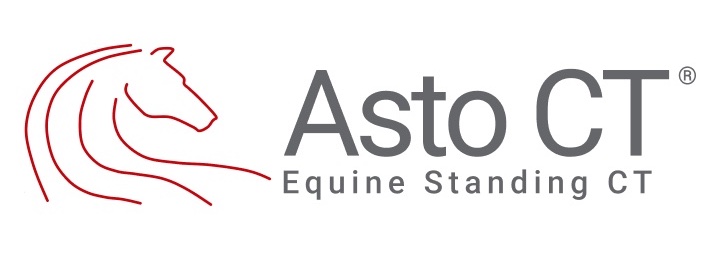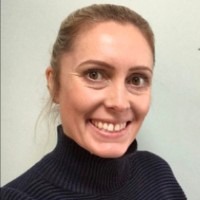Neck Problems: Recent Advances & Latest Thinking in Diagnostic Imaging
Species
Equine
Contact Hours
3 Hours - RACE Approval Pending
Early Booking Deadline
Fri, 12 July, 2024
Registration Deadline
Wed, 31 July, 2024
Language
English
Discipline
Diagnostic Imaging
Neurology
Industry Partners
Global


Veterinary Partners
Global



Recorded: 24th September 2024
Panelists:
Jonathan Anderson BVM&S, DACVS, MRCVS - Rainbow Equine Hospital, UK
Katherine Garrett DVM, DACVS - Rood & Riddle, USA
Rhiannon Morgan BSc, BVSc, CertAVP, MVetMed(Hons), PhD, DECVDI, MRCVS, EBVS - IVC Evidensia, UK
Moderator:
Monica Aleman DVM, PhD, DACVIM - UC Davis, USA
PANEL DISCUSSION DESCRIPTION
This interactive and multidisciplinary discussion among four world-leading experts will address recent advances in neck related problems with regards to recognized clinical presentations, diagnosis, and treatment options with a focus on imaging. Cervical vertebral compressive myelopathy (CVCM) causing ataxia, proprioceptive deficits, tetraparesis and dysmetric gait has been the focus of study for years with the earliest reports in horses since 1968. However, it has become apparent that other clinical manifestations related to neck pathology are also an important cause of impaired performance, pain, and compromised quality of life. Other manifestations of disease include thoracic limb lameness with no concurrent ataxia, thoracic limb lameness with concurrent ataxia, neck pain, and stiff neck, among others. Equally important is to rule out other problems that can cause lameness and neurologic dysfunction as differentials for neck pathology.
Diagnostic modalities such as imaging and neuroelectrodiagnostics are important aids for diagnosis and further understanding of underlying pathophysiology, as well as forming part of some prepurchase examinations. Therefore, it is essential to determine what imaging findings might be clinically relevant. Most recent studies have focused on Warmblood breeds with controversial results. This session will discuss some of these issues.
Points proposed for discussion include:
- Various clinical manifestations: stiff neck, pain, poor performance, intermittent lameness, ataxia, and distinguishing those associated with neck pathology from those of the appendicular skeleton
- Compression of spinal nerves - what degree of intervertebral foramina narrowing causes spinal nerve root impingement and/or clinical signs
- Intervertebral disc disease as a cause of ataxia
- Interpretation of cervical vertebral column radiographs (normal, variations of normal, abnormal)
- Enlarged articular process joints
- When the radiographic myelogram and CT myelogram “disagree” at a particular site, how do you interpret these findings?
- What degree of association (agreement) is there between radiography and CT with regards to spinal cord impingement?
- CT - what do we know?
- What amount of subarachnoid contrast attenuation in CT myelogram is considered significant?
- Can we improve diagnostic accuracy? Ultrasound, CT, MRI, electrodiagnostics
- Prepurchase examinations (PPE): Clinical relevance of radiographic findings - enlargement of APJs
Dr. Monica Aleman obtained her veterinary degree at the University UNAM-Mexico. She completed residencies in large animal internal medicine (equine emphasis) and neurology and neurosurgery at UC Davis; and achieved board certification for both specialties by the American College of Veterinary Internal Medicine. She completed a PhD in comparative pathology in neuromuscular disorders at UC Davis. Her research and clinical interest have focused in neurology, neuromuscular and muscle disorders in all species with equine emphasis. She is a full professor of the equine internal medicine and neurology services, chief of service of equine internal medicine, and co-Director of the Neuromuscular Disease Laboratory at UC Davis where samples from both humans and animals are processed. Dr. Aleman is one of the founding members of the Equine and Comparative Neurology Research Group, and is affiliated with the Clinical Neurophysiology Laboratory at UC Davis. Dr. Aleman is author of over 110 peer reviewed medical publications, over 100 proceedings and abstracts, and over 30 book chapters; and is a regular speaker in national and international meetings. Dr. Aleman has served as a reviewer for scientific journals, and grant committees. Dr. Aleman is regularly consulted in challenging cases with neurologic and muscle disease throughout the world. Currently, she works in the investigation of neurologic and neuromuscular disorders in multiple species including humans. Dr. Aleman was recently appointed the Terry Holliday Presidential Endowed chair in Comparative Neurology by the University of California at Davis, and awarded an alumni recognition for Excellence in teaching, service, and research by the National Autonomous University of Mexico.
More InfoJonathan Anderson is a director and surgeon at the Rainbow Equine Hospital. He is a Royal Veterinary College Equine Surgical Specialist, a Diplomate of the American College of Veterinary Surgeons and an FEI Veterinary Delegate.
Jonathan graduated from the Edinburgh’s Royal School of Veterinary Studies in 2000, completed an internship year at the San Luis Rey Equine Hospital in California, before moving to the Rainbow Equine Hospital in the UK for 3 years. He went back Stateside to undergo a large animal clinical fellowship at Oregon State Veterinary Teaching Hospital followed by an Equine Surgical Residency at the University of California, Davis. He achieved diplomate status in 2009, remained as a clinical instructor at UC Davis for a year before moving back to the Rainbow Equine Hospital at the end of 2009 to join the surgical team. He has been involved in advancing the use of CT both as diagnostic and intra-operative imaging modality within the equine veterinary field. His main veterinary interests include all things orthopaedic which includes the evaluation, advanced imaging and surgical treatment of horses with cervical stenosis. He is keen to see a sharing of knowledge and equipping of equine vets to recognise and treat horses with this condition.
His biggest asset is his long suffering wife Naomi and he kind of helps to manage a brood of 5 kids which means little time for any other activities although a run in the mountains every so often is where he likes to recharge his batteries once again!
More InfoDr. Katie Garrett attended Dartmouth College in Hanover, NH, where she obtained her Bachelor of Arts degree in biochemistry and molecular biology in 1999. She then attended veterinary school at Cornell University in Ithaca, NY, graduating with distinction in 2003. Dr. Garrett completed two internships (2003-2005) and an equine surgery residency (2008-2011) at Rood & Riddle Equine Hospital, achieving board certification in the American College of Veterinary Surgeons in 2012. Her main area of interest is diagnostic imaging, with particular interests in musculoskeletal MRI and laryngeal imaging.
More InfoAfter graduating from Liverpool University, Rhiannon completed an internship in equine diagnostic imaging and orthopaedics at the Animal Health Trust, Newmarket, before practicing as an equine ambulatory vet in Cambridgeshire. A PhD focused on inflammatory cytokines and osteoarthritis led her back to Liverpool University. Rhiannon then completed a large animal diagnostic imaging residency at the Royal Veterinary College, where she continued as a lecturer and radiologist. Rhiannon is currently UK Head of Equine Diagnostic Imaging for IVC Evidensia, and for over 10 years has produced the Equine Veterinary Journal podcast. Her research interests focus on imaging of the head and joint pathology.
More InfoQualified Vet
Online Panel Discussion
USD 95.00
Intern/PhD (Requires proof of status)
Online Panel Discussion
USD 70.00
Vet Nurse/Vet Tech (Requires proof of status)
Online Panel Discussion
USD 70.00
Veterinary Student (Requires proof of status)
Online Panel Discussion
USD 20.00
If the options you are looking for are unavailable, please contact us.
No tax will be added unless you are a UK taxpayer
Choose currency at checkout



















